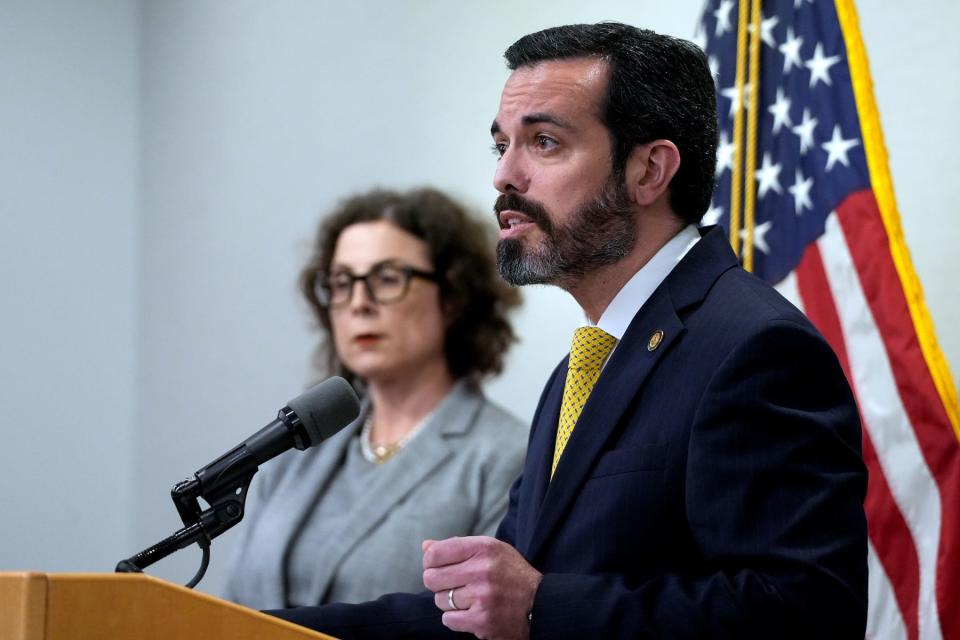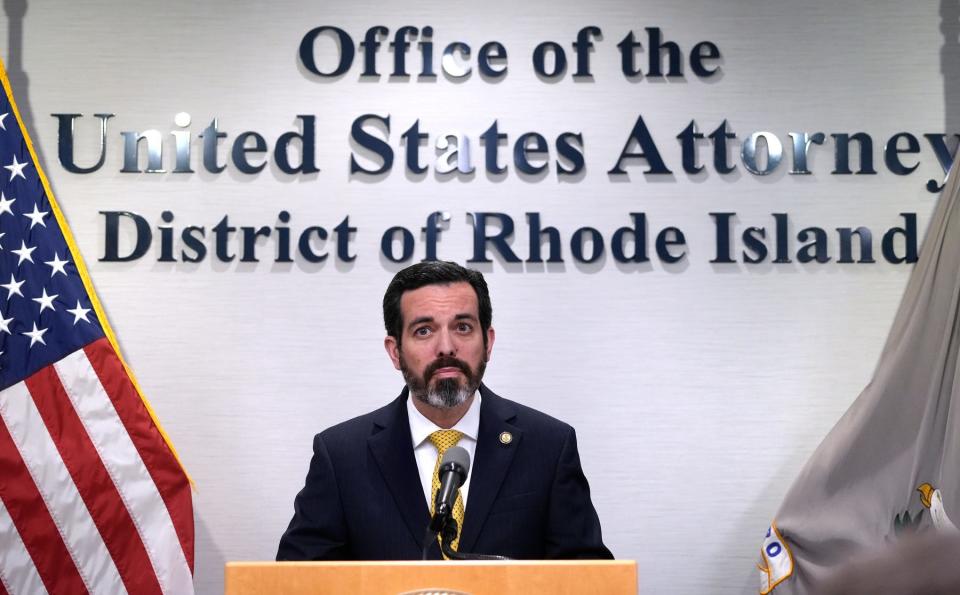'Appalling': Feds accuse RI DCYF of 'warehousing' children at Bradley Hospital. What to know.
PROVIDENCE − Rhode Island has violated the federal civil rights of hundreds of children with mental-health or developmental disabilities by "routinely and unnecessarily segregating" them at Bradley Hospital, U.S. Attorney Zachary Cunha said Monday.
Rather than placing children with such disabilities in intensive in-home or community-based programs, Cunha said the state's Department of Children, Youth & Families has over-relied on hospitalizing them at Bradley, leaving them there for weeks, months and, in a few cases, more than a year.
“Rhode Island has failed, miserably and repeatedly, to meet its legal obligations to children with mental-health and developmental disabilities,” he said.

What comes next?
Speaking to reporters, Cunha said his office had notified the state, including specifically the DCYF, of “this appalling failure,” giving them 10 days to respond to the findings of the federal government's investigation.
If the state doesn't do so adequately, the federal government will file a lawsuit, he said.
For several years, child care advocates have condemned the DCYF's practice of relying on psychiatric hospital settings for services rather than residential or outpatient treatment centers that can provide proper educational and care services.
The problem has been particularly acute for adolescent girls, where the shortage of in-state treatment options has forced the DCYF to send children out of state for services or, when programs have no open beds, to hold them for extended periods of time in hospitals, such as Bradley.
What federal investigators found looking at the period of January 2017 through September 2022 "is not complicated," said Cunha.
Under Title II of the Americans with Disabilities Act, “there is a clear legal obligation on states to provide services and programs for individuals with disabilities in the most integrated setting appropriate to the individual’s needs."
"The state failed to meet that obligation, not in isolated instances. Not sporadically, but repeatedly, unjustifiably, and with dire consequences,” he said.
Cunha said the DCYF seemed to employ a mere “check-the-box” practice of evaluating children, not looking closely at their individual needs and instead shipping them off to be relegated out of sight in a psychiatric setting.
"It breaks the heart. And equally to the reason we are here today, it breaks the law," he said.

Hospitalization was supposed to last just a week or two
Stays at Bradley were supposed to be for short-term crisis-stabilization care lasting one or two weeks.
Instead, the average stay of those children was 51 days.
In one case, Cunha said, a 9-year-old girl spent 826 days over five separate admissions during the span of time studied by investigators.
That investigation, conducted by Cunha's office and the U.S. Department of Health and Human Services Office of Civil Rights, found:
527 children in DCYF care from Jan. 1, 2017, through Sept. 30, 2022, who had been hospitalized at Bradley Hospital for more than 100 consecutive days, according to a news release.
42 children were hospitalized for more than 180 days.
Seven children were hospitalized for more than a year.
“That’s time with no meaningful access to family, friends, the comforts of home, the chance to play outside, to go to school – to be a kid instead of a patient in a locked ward," said Cunha.
“The state knows how to provide this care,” the U.S. attorney said. “Our investigation found that DCYF has programs that can and should provide community-based care, but that it fails to adequately support or devote resources to those programs to make sure they are accessible and maintain needed capacity.”

More on DCYF's practice: 'A complete failure': The plight of 2 teens lays bare the absence of mental health care for girls
Looking back: RI officials were warned
In 2021, Family Court Chief Judge Michael B. Forte warned lawmakers that Rhode Island faced a potential sex-discrimination lawsuit because of its inadequate psychiatric services for girls.
“I believe DCYF is guilty of systematic sex discrimination in failing to provide comparable services and placements for girls as it does for boys,” the judge said at the time.
Kevin Aucoin, then the acting DCYF director, pointed to the state’s contract since 2019 with St. Mary’s Home for Children, in North Providence, to provide psychiatric residential treatment for girls, and talked of the desire to find more beds.
The state stopped placing children in St. Mary’s last November as an investigation from the state Child Advocate’s Office was uncovering a litany of incidents involving improper child care, assaults and mismanagement.
St. Mary’s is now under new management, and the state has approved spending $11 million for a 12-bed addition there.
More on DCYF: Months after a bombshell report, St. Mary's Home for Children responds to accusations
In a statement Monday evening, the DCYF said it takes “these findings very seriously” and since November 2022 “has worked with Bradley Hospital and Hasbro Children’s Hospital to expedite discharges to appropriate placements as quickly as possible.” It said the state was also committed to investing in more in-state psychiatric beds.
In April the Rhode Island Supreme Court vacated Family Court orders finding the DCYF in contempt for failing to place two teenage girls with significant behavioral and mental-health issues, saying it wasn’t as if the department hadn’t tried.
“This is not a situation where the department sat on its hands and made no attempt to address the problem or comply with the court’s order,” Justice Erin Lynch Prata wrote for the court.
Asked about that decision, Cunha said his office couldn't comment on specific Family Court cases: “Our fundamental contention is that the state needs to do more to meet its federal civil rights obligations. Period. Full stop.”
Contact Tom Mooney at: tmooney@providencejournal.com.
This article originally appeared on The Providence Journal: RI under fire for treatment of kids with behavioral health problems

